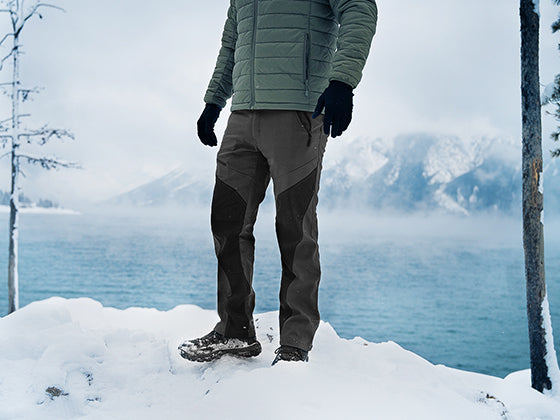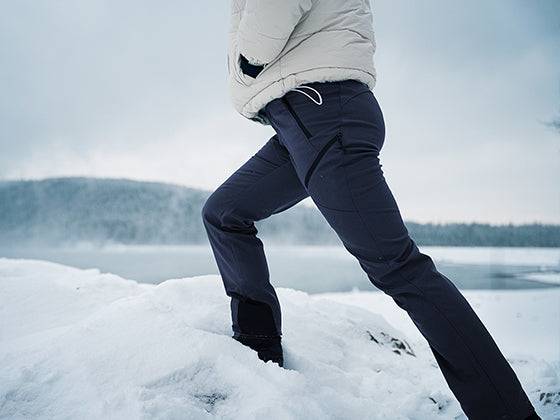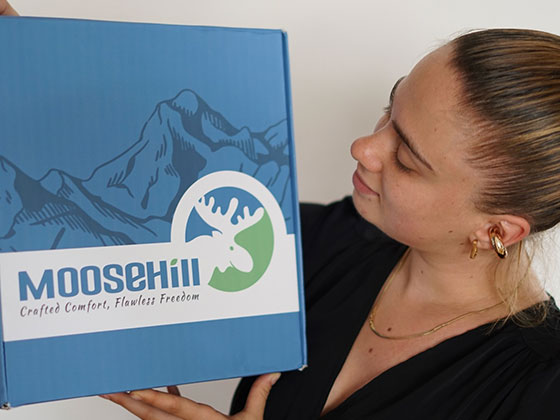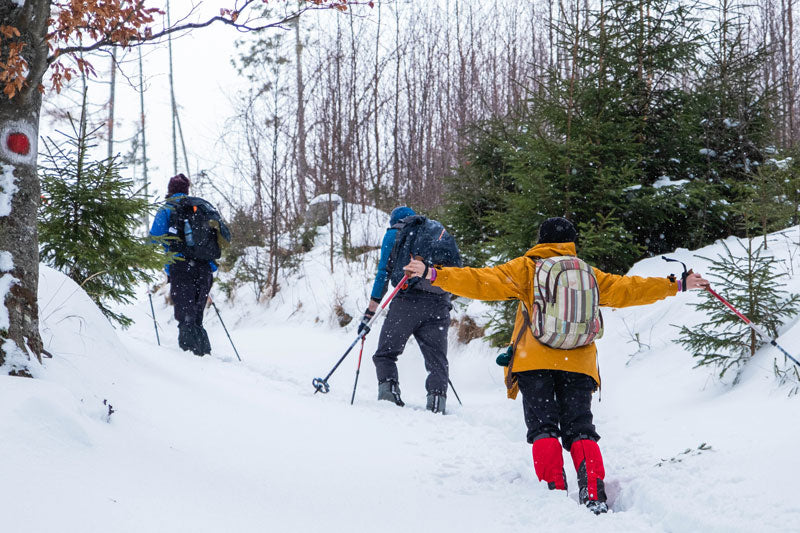Care este cea mai bună mâncare pentru ciclism montan
Ciclismul montan este un sport solicitant care necesită nu doar forță fizică și rezistență, ci și o abordare strategică a nutriției. Alegerile alimentare corecte pot influența semnificativ performanța unui ciclist, afectând totul, de la nivelurile de energie până la timpii de recuperare. Nutriția joacă un rol dublu în ciclismul montan; aceasta alimentează eforturile fizice intense necesare pentru a face față terenurilor variate și ajută la recuperarea rapidă necesară pentru cicliștii frecvenți.

Pentru a excela în bicicleta de munte, înțelegerea și implementarea unei diete echilibrate adaptate rigorilor sportului este crucială. O nutriție optimă poate ajuta la îmbunătățirea capacității unui ciclist de a menține niveluri ridicate de energie, de a susține rezistența pe trasee lungi și provocatoare și de a facilita o recuperare mai rapidă după plimbări intense. Această introducere va explora modul în care integrarea unor alimente specifice într-o dietă poate pregăti corpul pentru cerințele bicicletei de munte, susține o producție de energie constantă și accelera recuperarea musculară, conducând în cele din urmă la o performanță îmbunătățită și o experiență de plimbare mai plăcută.
activitate intensivă pentru abdomen care necesită un aport caloric ridicat pentru a susține efortul fizic prelungit. Terenul accidentat și nevoia continuă de putere și echilibru înseamnă că cicliștii ard o cantitate semnificativă de calorii. Nevoile calorice exacte pot varia în funcție de factori precum dificultatea traseului, greutatea ciclistului și durata și intensitatea plimbării. În general, cicliștii de munte pot necesita între 500 și 800 de calorii pe oră în timpul plimbărilor intense. Aceasta necesită o dietă bine planificată care să poată susține eliberarea de energie pe termen lung.
Prezentare generală a macronutrienților și rolurile acestora

● Carbohidrați: Sursa principală de combustibil pentru activități de intensitate mare. Carbohidrații sunt stocați sub formă de glicogen în mușchi și ficat, oferind energie în timpul explozilor scurte de activitate intensă și eforturilor susținute în timpul plimbărilor lungi. Alimentele bogate în carbohidrați complecși, cum ar fi cerealele integrale și legumele amidonoase, sunt esențiale pentru încărcarea rezervelor de glicogen ale corpului.
● Proteine: Cruciale pentru repararea și creșterea mușchilor. În timpul plimbărilor lungi, corpul poate începe să descompună țesutul muscular pentru a obține energie, făcând esențială o bună aport de proteine pentru a preveni pierderea musculară și a ajuta la recuperarea după plimbări. Surse bune includ carne slabă, pește, ouă și proteine pe bază de plante, cum ar fi fasolea și lintea.
● Grăsimi: Importante pentru energie pe termen lung, în special în timpul exercițiilor de intensitate mai mică și prelungite. Grăsimile sănătoase, cum ar fi cele găsite în nuci, semințe, avocado și pește gras, ajută la menținerea energiei odată ce rezervele de carbohidrați sunt epuizate și sunt esențiale pentru sănătatea generală.
Importanța Hidratare și a Echilibrului Electroliților
Hidratarea este esențială în mountain biking nu doar pentru a înlocui fluidele pierdute, ci și pentru a menține funcția musculară și a preveni oboseala. Apa reglează temperatura corpului, iar o hidratare insuficientă poate duce la supraîncălzire și la o performanță redusă. Electroliții, inclusiv sodiu, potasiu și magneziu, sunt pierduți prin transpirație și trebuie reîntregiți pentru a menține funcția nervoasă și contracția musculară. Menținerea echilibrului electrolitic poate fi realizată prin băuturi îmbogățite cu electroliți, care sunt deosebit de importante în timpul plimbărilor mai lungi sau în vreme caldă pentru a preveni crampe și deshidratare.
Înțelegerea acestor elemente nutriționale ajută cicliștii montani să își optimizeze dieta pentru a face față cerințelor fizice ale sportului lor, asigurându-se că au combustibilul potrivit atât pentru plimbările scurte și intense, cât și pentru provocările lungi de anduranță.
Nutriție înainte de plimbare
Cele mai bune alimente de consumat înainte de o plimbare pentru a maximiza energia
Optimizarea nutriției înainte de plimbare este esențială pentru a asigura că un ciclist montan are energia susținută necesară pentru a face față traseelor dificile. Accentul ar trebui să fie pus pe consumul unei mese echilibrate care include carbohidrați complecși pentru energie de lungă durată și cantități moderate de proteine pentru suportul muscular, împreună cu un consum scăzut de grăsimi pentru a evita problemele de digestie în timpul plimbării.
● Carbohidrați Complecși: Acestea sunt vitale deoarece oferă o eliberare lentă și constantă de energie. Alimente precum ovăzul, pâinea integrală, orezul brun și cartofii dulci sunt alegeri excelente.
● Proteină moderată: Incorporarea unei cantități moderate de proteină ajută la pregătirea mușchilor pentru stresul fizic al ciclismului. Surse bune includ pui slab, curcan, tofu sau iaurt grecesc.
Timpul meselor – Cât de mult înainte de o plimbare să mănânci
Sincronizarea meselor înainte de plimbare este la fel de importantă ca și conținutul mesei:
● Masa Principală: O masă substanțială care conține carbohidrați și proteine ar trebui consumată cu aproximativ 2 până la 3 ore înainte de a călări. Acest lucru permite suficient timp pentru digestie și pentru ca energia să devină disponibilă în timpul călătoriei.
● Gustare: Pentru cei care au nevoie de un impuls mai aproape de ora de plecare, o gustare mică cu 30 până la 60 de minute înainte de a începe poate fi utilă. Această gustare ar trebui să fie ușor de digerat și bogată în carbohidrați, cum ar fi o banană sau o bară de granola.
Exemple de mese și gustări înainte de plimbare
● Masă completă (2-3 ore înainte):
· Ovăz acoperit cu o banană feliată și o presărată de migdale.
· Un sandviș pe pâine integrală cu curcan, avocado și o mână de măr.
· O bol de quinoa cu legume mixte și pui la grătar.
● Gustare (30-60 de minute înainte):
· O bucată de fruct, cum ar fi un măr sau o pară.
· O prăjitură din orez cu un strat subțire de unt de migdale.
· O porție mică de iaurt cu un strop de miere.
Prin planificarea atentă a meselor și gustărilor înainte de plimbare, cicliștii de munte pot asigura că încep plimbarea cu rezerve adecvate de combustibil, ajutând la prevenirea oboselii timpurii și menținerea performanței optime pe parcursul plimbării.
trasee provocatoare. Pe măsură ce rezervele de glicogen încep să se epuizeze, replenizarea energiei devine esențială pentru a preveni oboseala și a menține concentrarea și funcția musculară. Strategiile eficiente de nutriție în timpul plimbării ajută la stabilizarea nivelului de zahăr din sânge și oferă un aport continuu de energie mușchilor.
Alimente ușor de digerat, bogate în energie, potrivite pentru a fi consumate în deplasare
Alegerea alimentelor potrivite, care sunt ușor de digerat și de transportat, poate face o diferență semnificativă în menținerea energiei pe parcursul călătoriei. Aceste alimente ar trebui să fie bogate în carbohidrați și ușor de digerat pentru a evita disconfortul gastrointestinal.

● Geluri Energetice: Rapide și convenabile, gelurile energetice pot livra rapid carbohidrați în fluxul sanguin.
● Batoane Energetice: Căutați batoane care sunt bogate în carbohidrați și mai sărace în proteine și fibre pentru a vă asigura că sunt digerabile în timpul activităților intense.
● Fructe uscate: Opțiuni precum stafidele, caisele sau curmalele oferă zaharuri naturale pentru un impuls rapid de energie.
● Banane: Cunoscute pentru conținutul ridicat de carbohidrați și potasiu, bananele sunt ideale pentru prevenirea crampelor musculare.
Strategii de hidratare – Apă vs. băuturi cu electroliți
Hidratarea este la fel de importantă ca și consumul de alimente solide în timpul unei plimbări. Alegerea între apă și băuturi cu electroliți poate depinde de durata și intensitatea plimbării.

●Apă: Esentială pentru toate plimbările, apa este de obicei suficientă pentru plimbările scurte până la moderate de sub 90 de minute. Ajută la hidratarea eficientă fără caloriile sau zaharurile adăugate.
●Băuturi Electroliți: Pentru plimbări mai lungi, în special în vreme caldă sau pentru cicliști care transpiră mult, băuturile cu electroliți pot fi benefice. Ele ajută la reumplerea sodiului și altor electroliți pierduți prin transpirație, îmbunătățesc hidratarea și previn crampe.
În timpul unei plimbări, este recomandat să bei cantități mici frecvent, mai degrabă decât să consumi volume mari rar. Această abordare ajută la menținerea unei hidratări optime fără a te simți umflat sau inconfortabil.
Prin integrarea acestor strategii nutriționale în rutina lor, bicicliștii montani își pot gestiona eficient nivelurile de energie și hidratare, asigurându-se că au stamină și concentrare necesare pentru a face față oricăror provocări de pe traseu.
Alimente pentru recuperarea după plimbare
Alimente care ajută la recuperare
După o sesiune obositoare de mountain biking, accentul pe nutriție se mută spre recuperare – refacerea rezervelor de glicogen epuizate și repararea țesutului muscular. Acest lucru se realizează cel mai bine printr-o combinație de carbohidrați și proteine.
● Carbohidrați: Esențiali pentru refacerea rezervelor de glicogen muscular care au fost epuizate în timpul plimbării. Pâinea integrală, pastele, orezul și fructele sunt surse excelente.
● Proteine: Cruciale pentru repararea și creșterea mușchilor. Consumul de proteine precum pui, pește, tofu sau proteină din zer ajută la repararea fibrelor musculare deteriorate în timpul plimbării.
● Alimente antiinflamatorii: Alimente precum cireșele, fructele de pădure și turmericul pot ajuta la reducerea inflamației și durerii musculare.
Timpul nutriției post-ride – Fereastra de recuperare
Momentul nutriției după plimbare este critic pentru o recuperare optimă:
● Fereastra imediată (în termen de 30 de minute): Cunoscută sub numele de "fereastra de aur", aceasta este perioada în care mușchii sunt cei mai receptivi la replenizarea glicogenului și inițierea reparării. O gustare sau un shake bogat în proteine și carbohidrați este ideal în acest timp.
● Recuperare Extinsă (în termen de 2 ore): O masă mai substanțială ar trebui să urmeze pentru a continua procesul de recuperare, concentrându-se pe un aport echilibrat de carbohidrați, proteine și grăsimi.

Exemple de mese post-ride și shake-uri de recuperare
● Shake-uri de recuperare:
· Lapte de ciocolată: O băutură de recuperare simplă și eficientă care oferă atât carbohidrați, cât și proteine.
· Shake proteic cu banană și fructe de pădure: Amestecați proteină din zer, o banană, o mână de fructe de pădure și lapte de migdale pentru un shake de recuperare revigorant.
● Mesaje (în termen de 2 ore după o plimbare):
· Piept de pui la grătar cu quinoa și legume la abur: Oferă un amestec echilibrat de proteine, carbohidrați și micronutrienți.
· Somon cu cartofi dulci și o salată: Oferă acizi grași omega-3 pentru beneficii antiinflamatorii, împreună cu carbohidrați și proteine.
· Paste cu carne slabă de vită și sos marinara: Mâncare reconfortantă care oferă un bun echilibru de nutrienți necesari pentru recuperare.
Integrarea acestor strategii nutriționale în rutina de după plimbare ajută la accelerarea recuperării, reducerea durerilor musculare și pregătirea corpului pentru următoarea plimbare mai eficient.
Cele mai bune opțiuni de alimente naturale pentru Mountain Biking
Lista și beneficiile opțiunilor de alimente integrale

Alimentele naturale pot oferi o sursă bogată de nutrienți pentru bicicliștii montani, oferind energia esențială, vitaminele și mineralele necesare pentru performanță și recuperare. Iată câteva alimente integrale cheie și beneficiile lor:
● Banane: Plină de potasiu, care ajută la prevenirea crampelor musculare, și carbohidrați pentru energie rapidă.
● Nuci: Alunele, nucile și caju oferă grăsimi sănătoase, proteine și magneziu, care ajută la funcția și recuperarea mușchilor.
● Ovăz: O sursă excelentă de carbohidrați complecși și fibre, oferind o eliberare constantă de energie.
● Cartofi dulci: Înalți în vitaminele A și C, mangan și carbohidrați complecși, ajută la stimularea imunității și oferă energie susținută.
● Fructe de pădure: Rich în antioxidanți, care ajută la reducerea stresului oxidativ și a inflamației cauzate de activitatea fizică intensă.
● Spanac: Încărcat cu fier și magneziu, esențiale pentru producția de energie și sănătatea mușchilor.
● Ouă: O sursă completă de proteine, conținând toți aminoacizii esențiali necesari pentru repararea și recuperarea mușchilor.
Compararea cu alimentele și suplimentele sportive comerciale
Deși alimentele integrale oferă o gamă largă de nutrienți împreună cu fibre și alte compuși benefici, alimentele și suplimentele comerciale pentru sport oferă avantaje specifice în anumite condiții:
● Conveniență: Produsele comerciale precum gelurile energetice, batoanele și shake-urile gata de băut sunt portabile și convenabile pentru consumul în mișcare în timpul plimbărilor lungi.
● Viteza de Digestie: Multe produse sportive sunt concepute pentru a fi digerate rapid, oferind o sursă rapidă de energie care poate fi benefică în timpul perioadelor prelungite de efort.
● Nutriție Țintită: Suplimentele precum pudrele de electroliți și shake-urile proteice pot oferi cantități precise de nutrienți necesari pentru îmbunătățirea performanței și recuperare, care ar putea fi mai greu de obținut doar prin alimente integrale.
Integrând Alimentele Naturale cu Produsele Sportive
Pentru o performanță și sănătate optimă, un echilibru între alimentele naturale și produsele comerciale pentru sport poate fi benefic. Alimentele naturale ar trebui să constituie baza dietei unui ciclist pentru o sănătate generală, în timp ce produsele pentru sport pot fi utilizate strategic în timpul plimbărilor sau competițiilor, când livrarea rapidă a energiei și consumul convenabil sunt critice.
Prin înțelegerea beneficiilor atât ale alimentelor integrale, cât și ale produselor comerciale de nutriție sportivă, cicliștii de munte își pot adapta dieta pentru a răspunde atât nevoilor lor imediate de performanță, cât și obiectivelor pe termen lung în ceea ce privește sănătatea.

Gânduri Finale: Optimizarea Nutriției pentru Mountain Biking
În ciclismul montan, unde atât provocările, cât și mizele sunt mari, o nutriție adecvată joacă un rol esențial în determinarea performanței, rezistenței și recuperării unui ciclist. Acest ghid a conturat strategii dietetice esențiale adaptate specific nevoilor cicliștilor montani, subliniind importanța:
● Nutriția înainte de plimbare: Concentrându-se pe carbohidrați complecși și proteine moderate pentru a asigura eliberarea susținută a energiei și suportul muscular, consumate cu 2-3 ore înainte de plimbare.
● Nutriția în timpul călătoriei: Menținerea nivelului de energie cu alimente ușor digerabile și bogate în energie și asigurarea unei hidratări adecvate cu apă sau băuturi cu electroliți pentru a preveni oboseala și deshidratarea.
● Recuperare după plimbare: Replenizarea rapidă a rezervelor de glicogen și ajutarea reparării mușchilor cu o combinație de carbohidrați și proteine, ideal în primele 30 de minute după o plimbare.
● Alimente Naturale: Incorporarea alimentelor integrale precum bananele, nucile, ovăzul și cartofii dulci, care oferă o matrice bogată de nutrienți esențiali pentru sănătatea și performanța generală.
● Equilibrarea alimentelor naturale și comerciale: Deși alimentele integrale constituie baza unei sănătăți bune, alimentele sportive comerciale pot fi utilizate pentru conveniența și livrarea rapidă a nutrienților în timpul plimbărilor mai lungi.
"Deoarece corpul fiecărui ciclist răspunde diferit la diferite alimente și strategii nutriționale, este esențial să experimentezi cu diferite tipuri de mese și gustări pentru a descoperi ce funcționează cel mai bine pentru tine personal. Fii atent la modul în care corpul tău răspunde în diferite faze ale plimbării tale și ajustează-ți alegerile alimentare în funcție de ceea ce îți îmbunătățește nivelul de energie, îți îmbunătățește recuperarea și, în general, cum te simți în timpul și după plimbările tale."
Prin adoptarea unei abordări proactive în ceea ce privește nutriția, cicliștii de munte nu doar că își pot îmbunătăți performanța, dar pot, de asemenea, să își sporească plăcerea de a practica acest sport. Fiecare plimbare oferă o nouă oportunitate de a-ți ajusta dieta pentru a susține mai bine aventurile tale de mountain biking.
--- SFÂRŞIT ---
Pentru mai multe detalii despre Pantaloni scurți pentru bicicletă montană , dați clic pe și alege produsele cele mai potrivite!

【Sfat pentru ciclism】
· Ce pantaloni scurți poartă bicicliștii de munte?
· De ce sunt pantaloni scurți pentru mountain bike căptușiți în loc de șezut?
· Confortabile și Stilate: 5 Sfaturi de la Experți pentru Șorturi de Bicicletă
【Sfaturi pentru drumeții】
· Regulile de Aur pentru Drumeții în 2024
· Sfaturi pentru drumeții pentru începători
· Top 7 cele mai comune greșeli atunci când mergi pe munte
【Sfat de golf】
· Porți pantaloni sau șorturi la golf?
· Ghid Rapid: Alegerea Pantalonilor de Golf Perfecți
· 4 Sfaturi pentru a alege eficient îmbrăcămintea și accesoriile de golf
【Sfaturi pentru schi și zăpadă】
· Ce pantaloni sunt buni pentru zăpadă
· Pot fi folosite pantalonii de zăpadă ca pantaloni de ploaie?









